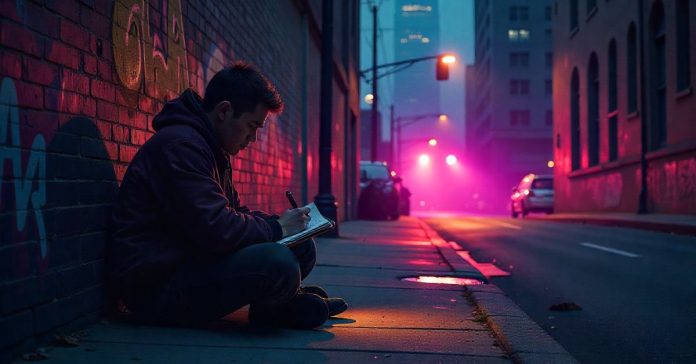Hip-hop was an expression that originated in the streets though some artists were literally the streets. The music industry cannot resist a good rags-to-riches tale and in this particular case we can look at how some of the biggest stars in the industry started, we discover that many rappers who were homeless turned their darkest moments into chart-topping gold.
These are not merely the feel good stories to make us thankful of our own. These are true tales of survival, desperation which spawned creativity, and naked talent that came out of the most difficult of situations available. With the option of sleeping in shelters, cars, or on couches of your friends because you can not afford rent of your own apartment, music is more than entertainment, it is a lifeline.
The Reality Behind the Glitter
Let’s be real here. The hip-hop industry has a complicated relationship with authenticity. Everyone wants street cred, but not everyone actually lived that life. However, when we look at rappers who were homeless, we talk about artists who did not want to struggle to gain clout- the struggle wanted them.
In America there are more than 650,000 people in homelessness every night, and almost a lot of this number consists of young people between 18-24. This is the same homogeneous demographics which normally resorts to hip-hop as an escape as well as a means of expression. Sometimes all that is left when you have nothing to lose is your voice.
From Shelters to Spotlights
Jay-Z (real name Shawn Carter) has spent certain period of his childhood switching apartments and occasionally living in shelters with his mother and other siblings. Being a child in the Marcy Projects in Brooklyn was not the equivalent of living in the lap of luxury but then sometimes it was not even there. They are related to his experiences with housing instability and conditioned not only his music but the whole attitude towards building business and wealth.
Notorious B.I.G. (Christopher Wallace) likewise had problems with housing in Brooklyn as a child. Before he became one of the greatest rappers who were homeless to achieve mainstream success, he was dealing with the harsh realities of inner-city poverty, including periods of housing instability.
The West Coast Struggle
Tupac Shakur’s story is particularly compelling when discussing rappers who were homeless. Tupac and his family had to change residency many times before they settled in and became one of the most influential performers of all time; as a matter of fact, they could suffer periods in shelters as wel as in temporary housing. His mother Afeni Shakur was a black panther activist and hence sometimes their houses were hard to keep stable due to the political fields they were in.
Before Dr. Dre remixed hip-hop production, he too was in danger of housing instability when he was young in Compton. The individual that would later discover Eminem and 50 Cent had been on the receiving end as regards to not having a guaranteed place to lay his head at night.
Modern Day Warriors
The tradition of rappers who were homeless continues into the current generation. Kendrick Lamar has been open about the plight of his family within the housing situation in Compton which was incurred by periods of staying with relatives or in temporary housing. These experiences can be seen in his album, good kid, m.A.A.d city in which he expresses them in a very truthful way.
Tyler, The Creator is not secretive about the family economic issues and the lack of a permanent place of residence that he was surrounded with as a teenager. Tyler is not special before becoming a cultural phenomenon Odd Future he was a young man struggling to locate at night when he would be asleep.
The Creative Catalyst
Here’s something interesting about rappers who were homeless— Most of them attribute their housing instability to be a contribution to their creativity. When you are picking constantly, not knowing when you will eat again, where you are going to sleep next, you grow an awareness of the environment around you, a tension in your language that is emphasised because you have to be there and now.
J. Cole has discussed how the financial issues in the family such as lack of housing stability in North Carolina affected his view on the pursuit of success and materialism. The music is usually reflective of an awareness that is rooted in lived experience rather than a social awareness about the issue of wealth inequality.
The Business of Survival
What separates successful rappers who were homeless from those who remained in difficult situations isn’t just talent—it’s often business acumen developed through necessity. When one has had to go about with hustling to meet basic needs, it becomes easier to switch this to the music industry.
There is nothing accidental about Jay-Z becoming a business mogul. The lessons of ownership and diversification came with the scarcity that he experienced. Once you have been homeless, you know that it is not a long term option to live on the favors of others.
Breaking the Cycle
The most successful rappers who were homeless don’t just escape their circumstances— they establish mechanisms so that other people can avoid suffering the same plight. The business endeavors of Jay-Z, such as Roc Nation to investing in such businesses as Uber, are the generational wealth building mentioned because it terminates a legacy of poverty.
Chance the Rapper General: Chance the Rapper grew up in a precarious housing situation in Chicago and has given millions of dollars to Chicago public schools, and supports school funding that would alleviate root causes of homelessness and poverty.
The Double-Edged Sword
There’s a dark side to celebrating rappers who were homeless, though. There is also a birth tendency in the music industry to glorify struggle as if to suffer is to be genuine. This is putting a strain on artists, either to overstate their victimhood or to feel improper should they have more solid backgrounds.
The way things are is that homelessness is traumatizing. It impacts an individual physically, mentally and on his education. Whereas some artists use that trauma to make art that is effective, many artists never have an opportunity since they are too busy just trying to survive.
Looking Forward to 2025 and Beyond
As we move through 2025, the conversation about rappers who were homeless is evolving. The social media has democratized the process of distributing music, which implies artists do not require the support of large labels to reach people. But this has also established new challenges- how do you develop an online presence when you do not have stable access to the internet or to a steady address?
TikTok, Instagram, and SoundCloud are some of the platforms through which young artists with no homes navigate to express their stories and their music in the current context. People record in library studios, others use their phones and free wifi provided there is such anywhere in their area. The instruments differe, the appetite is still there.
The Responsibility Factor
Successful rappers who were homeless carry a unique responsibility. They have experienced what most politicians and social workers can only study as an outsider. They have a voice when it comes to the discussion of affordable housing, youth services and poverty reduction.
When Drake is discussing beginning at the bottom (though admittedly, his bottom was a bit higher than that of many others), or when such artists as Meek Mill talk about criminal justice reform, they are attempting to use their platforms to utilitarian solutions to the systematic nature of the problem of homelessness.
The Human Element
Behind every success story of rappers who were homeless are countless others who didn’t make it out. Behind every Jay-Z or Tupac there is untapped talent that never got the time to tell their stories due to the weariness of the homeless. When you don t know where you are going to sleep at night, it is difficult to write lyrics.
This is not to put down the achievements of successful artists but just to put some context on their achievements. What you realize they had to go through, their achievement is all the more amazing.
Whenever you listen to a song by any of these musicians, think about how each bar of it was earned through experience, someone did not have to live through and yet it resulted to some of the most influential music that has ever been created. That’s the real story behind rappers who were homeless, not just survival, but transformation of pain into art that moves the world.

